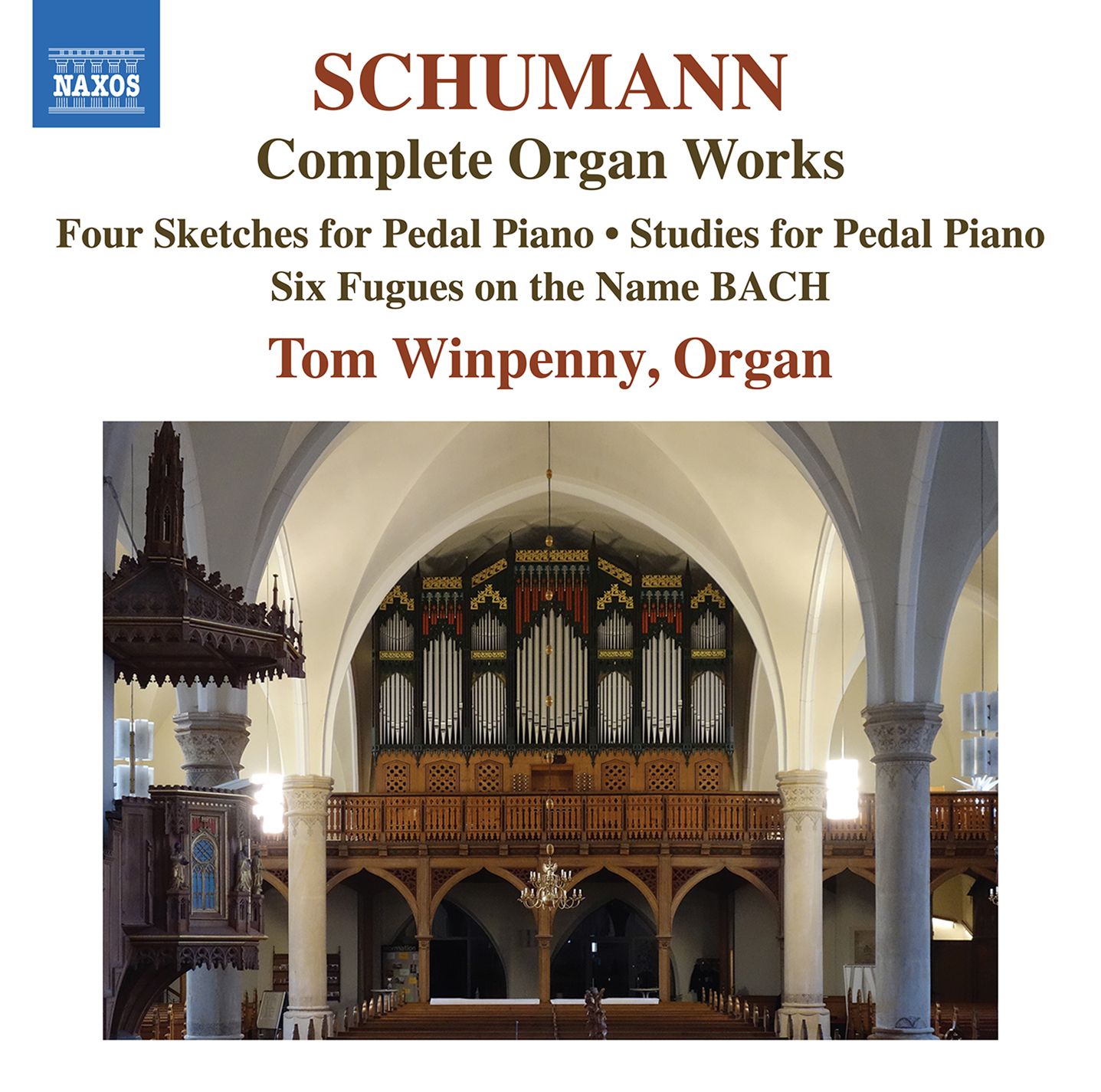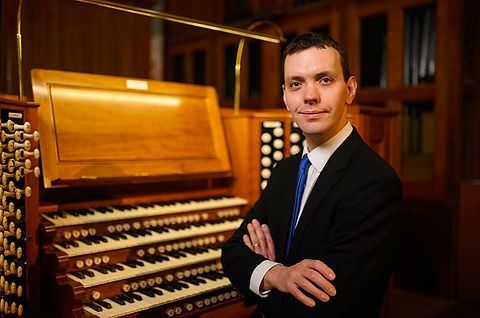Schumann: his organ works
This is a major organ release. Tom Winpenny is the real deal

What an pleasure this disc is! Schumann on the organ might not scream “buy me,” but what delights await the intrepid explorer!
All three works presented here date from 1845, the climax of Schumann's studies in counterpoint (he descirbed thsi period as “Fugen passion”!). Renting a piano with pedal board (Pedal-Flügel), the composer hoped to famliarise himself with organ technique. The results are the two sets written for this instrument (Opp. 56 and 58), both on this disc, performed on the historic and recently restored Furtwängler organ in Gronau, Germany.
There are Schumann tropes aplenty, both harmonically and rhythmically, in the first of the Op. 58 Skizzen (1845). Those dotted rhythms for one:
The second is grand, the organ opening up nicely (caught in a superb recording) and full of contrasts, with the ‘marked’ part of the indication (‘Nicht schnell und sehr markiert’) to the fore:
The middle section of the third takes us to rather more mysterious realms, a massive contrast to the brigt, extrovert outer sections. Winpenny's technique is flawless:
For me, the dotted rhythms of the final piece work suprememly well on organ, and in this performance the final cadence is perfectly prepared, and a delight when it arrives:

The Op. 56 set dates from the same year but the subtitle is different: instead of “Four Sketches,” we have “Six Pieces in Canonical Form”. They make a fine preparation for the final pieve on this album (the half-hour sequuence of fugues on BACH). The St Matthäi organ in Gronau is caught perfectly here in a piece that more than nods to Bach:
Winpenny is spot-on when he describes the second piece as a Romantic song without words. The melody itself is Heaven-sent (as are so many of this composer’s), and Winpenny presents it with the perfect sense of flow (so many organists interrupt this):
The third is intimate and tender, an Andantino on E-Major, an atmosphere prolonged inthe A flat-Major fourth (“Innig”).
Perhaps the most interesting from a composition technique viewpoint is the fifth (one singled out by Mendelssohn for praise), where the charateristic pervasive staccato conceals the canonic workings brilliantly. I like Winpenny's light touch a lot here:
It is surely the final Study that is the most impressive, an extended Adagio performed ith true Innigkeit by Winpenny:
When it comes to the Sechs Fugen über den Namen BACH, Op. 60 (still 1845), we come to the only music by Schumann explicitly written for full church organ. Immediately we enter a grander world, more spacious. Listen to the slow unfolding of the first Fugue:
As Winpenny says in his excellent notes, together the six fugues effectively form an Organ Symphony. The first fugue is unusual in containing an accelerando (Winpenny posits this might be the influence of the theif Organ Sonata by Mendelssohn, specifically that work's Con moto maestoso movement).
The second is fluid in extremis (Winpenny calls it “the most pianistic of the set”) and is certainly harmonically enigmatic in some of its sequences:
The restrained third Fugue, the most markedly traditional in technique, acts as something of an interlude, or at least plateau of calm, before the fourth uses octave displacement within the B-A-C-H motif itself to create a contoured subject:
The fifth could certainly be described as “bouncy”! Winpenny posits it is the Scherzo of the set. It has an elfin lightness that, were it not for the harmonies, could be aligned with Mendelssohn:
By some way, the final fugue (B flat-Major again - four out of the six are in this key) is the largest and most ambitious. This is a double fugue, the two subjects linked rhythmically. It is given a majestic performance by Winpenny, truly crowning thsi fine disc:
This is a major organ release. Winpenny is the real deal, his eloquence in writing booklet notes (with bibliographical footnotes!) as fine as his faultless performances. He has also recorded Messiaen, Malcolm Williamson, Judith Bingham and Francis Potts for Naxos. I look forward to future releases!
Also, at the time of writing, the Schumann organ disc is 11% reduced at Amazon:
